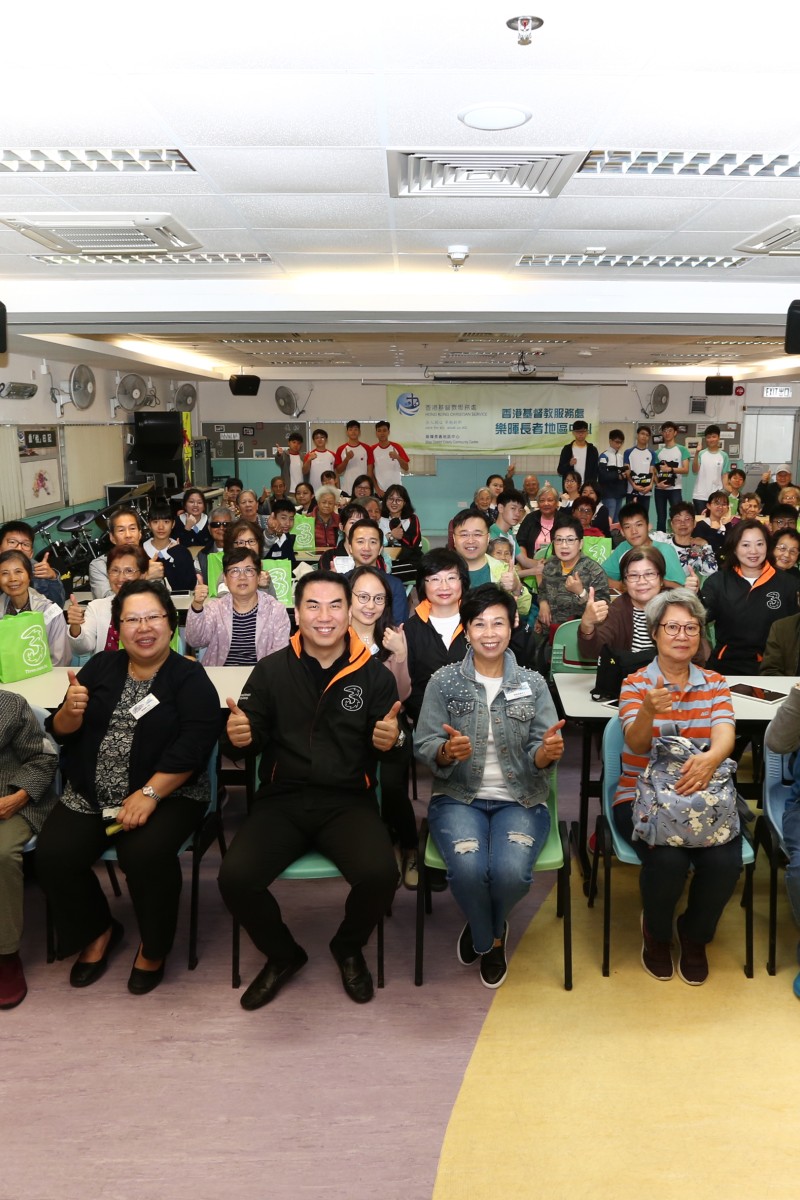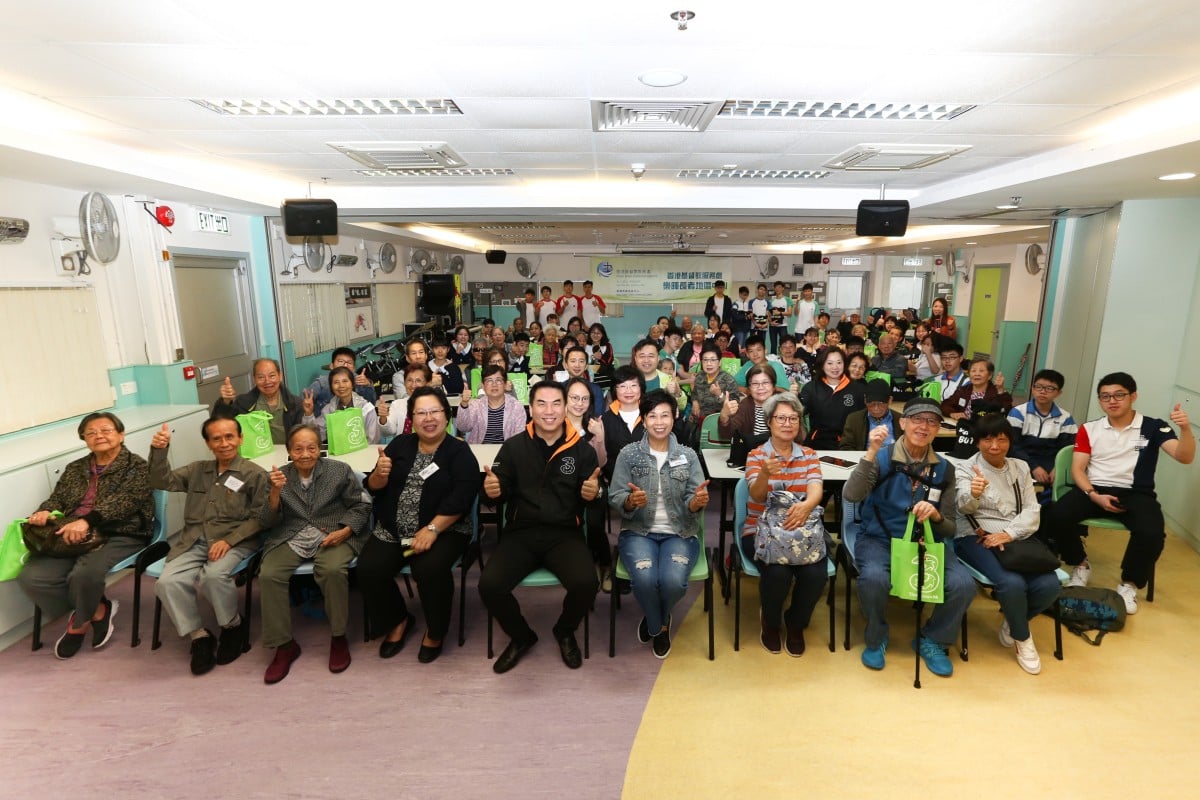
3 Hong Kong Smarter Senior Programme bridges the digital divide between students and elderly citizens
As part of World Telecommunication and Information Society Day, the project taught older people how to use apps and play mobile games, while promoting inter-generational harmony
 A total of 100 students visited four elderly centres on April 13.
A total of 100 students visited four elderly centres on April 13.Demographics tell us that Hong Kong is ageing, with about one in six of the population now aged 65 or above. In 10 years’ time, the number is expected to be one in four. So, it is important to take concrete steps to deal with the changes ahead, and one good way is by keeping elderly people in touch with the workings of an increasingly digital world.
The 3 Hong Kong Smarter Senior Programme is doing just that. It is backed by its title sponsor, 3 Hong Kong, and hosted by the Communications Association of Hong Kong, to align with World Telecommunication and Information Society Day 2019 (WTISD 2019).
Reflecting this year’s chosen theme of “bridging the standardisation gap”, around 100 students from six secondary schools took part. They arranged visits on April 13 to four centres for elderly people, where they gave one-to-one lessons on how to use different phone apps.
The apps chosen were for essential services like public transport and weather information, but the students also introduced some mobile games such as Fruit Ninja and Cooking Mama. Along the way, the students also drew on examples from their own lives to explain the day-to-day benefits of smart devices and apps.
Following these sessions, the senior citizens should now be able to use standard apps to check things like the arrival time of the next bus, or the chance of rain later in the day. This should also bring them a step closer to being digitally engaged.
Kenny Koo, Executive Director and CEO of Hutchison Telecommunications Hong Kong Holdings Limited, said the ultimate goal is to create inter-generational harmony by bridging the digital divide.
“Through this event, we aim to bring young and old together,” he said. “While members of the older generation can learn how to operate an app or use a mobile device, the youngsters can also learn how to communicate effectively and help others.”
One hope is that by knowing how to use apps, the senior citizens will be able to reconnect with old friends and develop new ties.
“In this way, we hope they can enjoy a happier and healthier life, feeling loved and being part of an active community,” Koo said. “Everything will just be a few clicks away for them.”
Viola Tsang, who is the Service Head, Active Ageing & Community Care of Hong Kong Christian Service, said that having access to the online world could be life-changing for some older people.
“Increasingly, we encounter senior citizens who are socially isolated due to health or other complications,” Tsang said. “Giving them a new way to access society means a lot to them.”
She added that events like this are a good first step to help older people join the online community, something confirmed by many of those who took part.
“I live alone, so no one around could teach me how to use tablets or smartphones,” said Leung Lai-ying, who is in her 70s. “I attended this programme to find out how to use them. I travel by bus a lot, so with the public transport app, I can now check bus stop locations and when the next bus will arrive.”
Kan Wing-man, who is 92, also said what he learned will be immediately useful. “I think the weather checking app will really help. I have reached an age where I have to be careful about whether to wear a bit more, or less.”
Pau Sin-yu, a Form Four student at Fukien Secondary School, said it was good to do something that makes a difference. “One old man in my group was in his 80s; four of his five children are not currently living in Hong Kong. By teaching him how to use WhatsApp and WeChat, I introduced a new communication platform which will make it far easier for him to keep in touch with his children."
